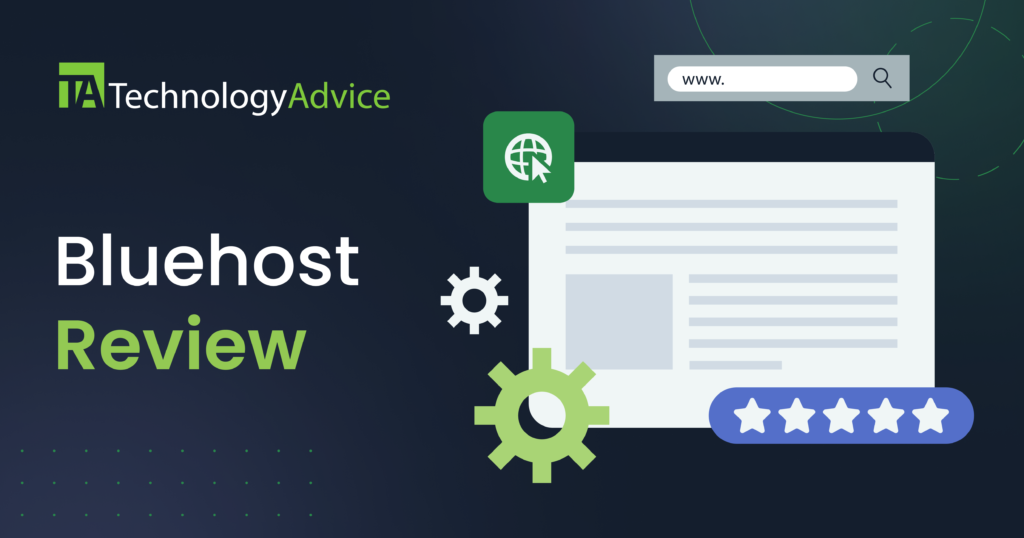Key takeaways
Simply put, business intelligence (BI) combines modern technology and verifiable information for the purpose of gaining new business insights. In many cases, BI software leverages artificial intelligence (AI) and machine learning (ML) to organize enormous datasets, separate useless or redundant information from actionable data, and guide decision-making.
This BI definition isn’t exactly new. Organizational leaders and stakeholders have been clamoring to make sense of all the incoming data in the Information Age ever since the turn of the century, and BI provides the solution that many have been searching for.
Business Intelligence vs. Data Analytics
It’s easy to conflate the standard business intelligence definition with that of data analytics. While the two concepts often go hand-in-hand, business intelligence relies on data analytics to provide actionable insight. In contrast, data analytics can be applied to many areas other than business and BI.
Modern BI uses a plethora of different tools, methodologies, and strategies to answer various questions about your company, your products or services, and your customers. Data analytics is really just one of the strategies used to transform generic, unorganized data into useful information.
Read More: Best Embedded Analytics Tools 2023
Using BI to Answer Your Most Important Questions
When used effectively and efficiently, business intelligence can answer some of your company’s most important questions. This includes inquiries about customers, marketing campaigns, profitability, and more.
Customers
Business intelligence provides a lot of insight into your customers. This includes their likes, dislikes, shopping habits, geographic locations, and more. You can use this information to answer many different questions about your customer base, including:
- Where are my customers located?
- How are customers finding my site online?
- How much time does each customer spend on my site?
- How many items does each customer purchase on average?
- How can I increase customer retention?
To bolster the customer experience, try to answer as many customer-specific questions as possible with your chosen BI software. Not only will this result in increased sales, but it can help optimize and refine many of your marketing strategies, too.
Marketing
Companies often use BI to guide and direct their marketing campaigns. This is achieved by answering questions such as:
- What are my most popular products?
- What are the most unpopular products?
- Are some products more popular in some regions than others?
Answering these questions can help you plan for future product launches, steer regional marketing efforts, and maximize your market exposure.
Profitability
You can also use BI to strengthen revenue generation and profitability.
- How much money does each customer spend on average?
- Am I capitalizing on repeat sales, or is each customer unique?
- Which staff members are making the most sales?
Questions like this are helpful when forecasting the profitability of future products, determining inventory levels, gauging the productivity of your sales team, and tracking key performance indicators across the board. Thankfully, a comprehensive business intelligence platform will answer all of these questions and more.
Also Read: Best Business Intelligence Dashboards
Understanding the Limitations of Business Intelligence
But, business intelligence isn’t the end-all solution that some are looking for. It’s important to understand its limitations before relying on BI to make critical business decisions.
- Initial Investment: Enterprise-grade BI platforms often require a costly initial investment. Luckily, these investments are often recouped in the way of actionable data.
- Forecasting: While most BI platforms do provide some sort of forecasting capabilities, this is often limited due to the historical nature of most datasets and records.
- Internal Controls: Some companies opt for self-service BI software, but this is only viable in the presence of strict internal controls and daily monitoring.
- Standardization: Modern BI platforms rely on standardized controls and rules, but some of these might not be applicable to all of your products, services, or customers.
Finally, it’s important to remember that any BI software is only as reliable as the information it stores and processes. If it’s gathering incorrect or irrelevant data — or if it’s being fed the wrong information to begin with — it’s going to produce inaccurate results.
Gathering Data for BI
The effectiveness of your business intelligence depends, in large part, on the quality of data you’re putting into it. Since a lack of data literacy costs U.S.-based organizations over $100 billion in lost productivity on an annual basis, it’s important to use genuine, legitimate sources of data.
- Performing Data Discovery: As the first step in gathering data, this process will let you find any internal datasets and records that are already accessible.
- Tapping Into Big Data: The prevalence of big data is a boon for business intelligence. Use any spreadsheets, databases, and analyses you can find — as long as they’re accurate and relevant.
- Ensuring Data Quality: Take some time to assess the quality of your data before committing it to your BI platform. Performing this analysis with a team of experts can help identify shortcomings, errors, and inaccuracies.
Leveraging BI in an Enterprise Setting
Business intelligence works great within an enterprise setting. In this scenario, it’s critical to find a full-scale BI platform that offers the following features:
- Analytics: Since data analysis is so critical to modern BI, you’ll want a BI platform that offers various forms of analytics.
- Team Collaboration: Collaborative features include the ability to communicate internally and externally, share data as needed, and maintain information security at all times.
- Governance: Data governance isn’t just for maintaining regulatory compliance. It’s also useful when trying to maximize data consistency and reliability.
- Usability: Today’s BI platforms offer customizable dashboards, in-depth search functionality, data visualizations, and more.
- Seamless Integration: Ensure your enterprise BI platform integrates seamlessly with your data pipeline. Support for add-ons and apps can also help empower your team and bring your BI to all-new heights.
Also Read: Tableau Alternatives
Viewing Business Intelligence in Action
You don’t have to look very far to see the success stories of BI in the 21st century. Every organization has their own reasoning for implementing business intelligence, but they all use BI to transform data into actionable insight.
Building your company’s reputation around BI has numerous advantages, including:
- Optimizing and streamlining day-to-day operations
- Improving data governance and regulatory compliance
- Attracting qualified candidates for your team
- Building stronger bonds between current teammates and staff
- Strengthening the overall customer experience
Operations
Many organizations using BI today do so to bolster their day-to-day operational needs. Analyzing data related to the supply chain, for example, will give managers and organizational leaders a clearer understanding of their operational efficiencies, bottlenecks, and challenges. This information can then be used to optimize distribution, negotiate pricing, and more.
Various kinds of BI-oriented analytics are applied to operations, including:
- Prescriptive Analytics: This involves the process of using data to guide decision-making, prescriptive analytics are deeply ingrained in the concept of BI.
- Predictive Analytics: Most BI platforms support predictive analytics that improve your organization’s ability to anticipate and forecast upcoming trends.
- Descriptive Analytics: This method uses historical and real-time data to identify relationships, connections, and trends.
- Diagnostic Analytics: This method scrutinizes data in an attempt to find out why a certain event or trend occurred in the first place.
Finance
Accurate data is critical to all aspects of financial analysis, record-keeping, and management. Financial analysts use business intelligence in a variety of ways, including:
- Identifying positive and negative trends in profitability or revenue
- Minimizing overhead costs on behalf of the organization
- Ensuring appropriate and competitive salaries for employees
- Budgeting and planning for the future
Reviewing and analyzing this data on a regular basis is the key to maintaining competitiveness in your industry.
Marketing
Business intelligence is also vital to modern marketing efforts. Any successful marketer knows the importance of researching target demographics prior to launching a marketing campaign, and this is exactly where BI comes into play.
- Segmentation: Make it easier to segment audiences and target specific demographics by using business intelligence.
- Return on Investment (ROI): Analyzing and following BI can help you increase your overall ROI for future marketing campaigns.
- Reporting: Use BI in marketing reports to compare forecasts against actual revenue, to minimize marketing costs, and to compare your performance with your competition.
Turning BI Into Your Career
Many different career opportunities exist in the field of business intelligence — as long as you have the right skill set. A combination of soft and hard skills are required, including a strong familiarity with general information technology (IT) and computer software.
Since the global BI market is expected to increase by nearly $20 billion by 2028, there are plenty of opportunities for qualified candidates to earn a living.
Hard and technical skills
Most of the hard skills required for a career in BI revolve around IT. A basic knowledge of personal computers is a necessity, and many organizations use business intelligence platforms like Microsoft Power BI or Tableau. However, some amount of advanced expertise is required, too.
- Database Management: Some common database platforms include Microsoft Access, MySQL, Oracle Essbase, and Apache Hive.
- Statistical Analysis: Various platforms are used to perform statistical analyses, including R and SAS.
- Enterprise Resource Planning (ERP): The most popular ERP options include SAP and PeopleSoft.
- Computer Programming: While a variety of programming languages could be used, many organizations work in C++, Python, or JavaScript.
Soft skills
Like other careers, the field of BI also requires various soft skills. To succeed in business intelligence, you’ll need the following skills and abilities:
- Critical and analytical thinking
- Problem-solving
- Accuracy, diligence, and attention to detail
- Deductive and inductive reasoning
- Written and oral communications
- Multitasking and time management
Read more about this year’s top BI careers.
Making the Most of BI Now and in the Future
While the concept of business intelligence has been around for decades, software developers are constantly finding new and innovative ways to collect, interpret, and share data. From established software suites like Microsoft Power BI to AI-powered and cloud-based services, there’s a modern solution for all of your BI needs.





